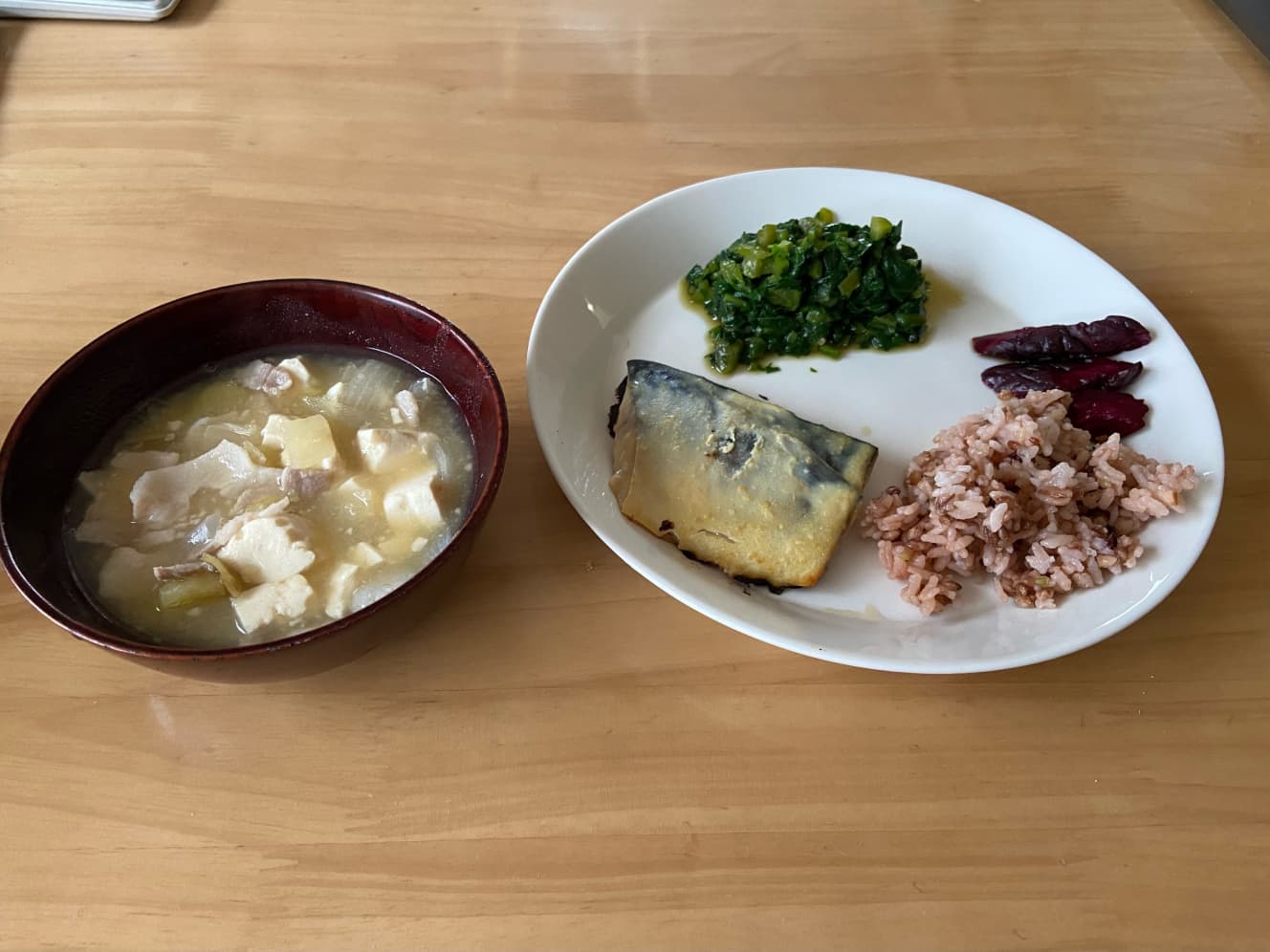Psychiatrist Explains Why Dietary Habits is Crucial for Mental Illness
I manage to work. But I’m not in good health, and my mind isn’t happy
“In the past, mental illness meant only people with serious illnesses. In contrast, today’s mental illnesses are often people who are able to manage their work, but are not healthy and do not feel happy. They are suffering from a series of small problems, such as tiredness, fatigue, and a lack of clarity of mind,” says Dr. Hiroshi Iizuka, director of the Medical Stress Care Iizuka Clinic. Although the clinic is located in a small town in Yonago City, Tottori Prefecture, many patients with mental problems come to the clinic from other prefectures and even from far away.
The causes of mental illness are complex and vary from person to person, and include a wide range of factors such as environment, personality, way of thinking, lifestyle, and sleep. Among them, those who are prone to mental illness have one thing in common: a poor diet.
“There are several dietary characteristics that lead to mental illness, the most common of which is a diet that causes rapid fluctuations in blood glucose levels. These include diets that are heavily dependent on carbohydrates, cannot stop eating sweets, canned coffee, and soft drinks, and skipping meals.”
“When blood glucose levels rise rapidly, insulin is secreted by the pancreas. The resulting sudden drop in blood glucose levels in turn causes the sympathetic nervous system to become dominant, and feelings of tension, anxiety, and fear all become stronger. It is safe to say that sudden fluctuations in blood glucose levels exacerbate any mental illness.”
Noodles such as ramen and udon noodles, bowls of rice, and other single-serving meals represent the most likely cause of rapid fluctuations in blood sugar. Although they contain the three major nutrients of protein, fat, and carbohydrates (sugar), if they lack the nutrients to burn them and convert them into energy, the body will suffer from energy deficiency, causing physical and mental disorders.

Dr. Iizuka explains, “In order to convert carbohydrates, fats, and proteins into energy, other nutrients such as vitamins and minerals are necessary. For example, a lack of vitamin B makes you tired easily, and a lack of iron can lead to irritation and poor concentration, in addition to fatigue.”
“A lifestyle centered on processed foods can lead to extreme deficiencies of such vitamins and minerals. By avoiding processed foods whenever possible and eating “whole foods,” we can achieve a well-balanced nutritional intake.”
In addition to what we eat, the way we eat also plays a role in our mental health.
“Eating too quickly while standing up, or eating while looking at your phone or working, excites the sympathetic nervous system, which prevents smooth digestion and absorption of food, which puts a strain on the gastrointestinal tract. Eating is an act of internalizing external food. When the sympathetic nervous system is in a fighting mode, even if you go to the trouble of taking well-balanced nutrition, your body will not be able to accept it properly. Eating in a pleasant and calm manner is a good way to keep mental disorders at bay.”
Feeling “somehow unwell” is an SOS issued by the mind and body
Dr. Iizuka, who has treated numerous patients with serious illnesses such as intractable depression and manic depression, has focused on the relationship between mental illness and nutrition, and in addition to treatment with medication, he also offers advice on lifestyle and diet improvement.
“If the mental symptoms are caused by a spike in blood glucose levels, it is important to avoid foods that rapidly increase blood glucose levels,” he said. “Eating quickly, especially bread, noodles, and rice bowls, is the worst. Also, sugary drinks are dangerous. If you take care of these, your symptoms will improve in no time.”
“However, people who have lost the ability to make blood sugar from nutrients other than carbohydrates will feel sick if they suppress carbohydrates too much, because their blood sugar level is maintained by carbohydrates and sympathetic nervous system excitement. Such people will feel better by eating carbohydrates such as cereal rice, which slowly raise blood glucose levels over time, and by making good use of complementary foods. In any case, it is the daily diet that counts.”
If a person with a mental illness is given the appropriate medication, the symptoms will naturally ease. But that is only a coping mechanism, he says.
“The source of the mental illness is in our daily lives, such as diet, sleep, lifestyle, and stress. Therefore, unless we reorganize our daily life itself, including our diet, the mental disorder will not fundamentally improve.”

Dr. Iizuka also points out that “modern people are not good at resting”. Mental illness does not just happen one day; it is the result of months or years of being “somehow unwell,” and it is the result of mental and physical problems.
“The reason why mental illness occurs is because you have not been able to return to a state of neutrality. If you get enough sleep and rest your body and mind, you will recover and return to neutral. If you return to a neutral state as often as possible, that state will become the norm. Then you will be able to savor a meal, a bath, a walk, a bit of scenery, flowers, and so on. That state of savoring is relaxation.”
“Many people who suffer from mental illness are unable to do this. They are always driven by tasks and worries, cutting down on sleep and rest, and skipping meals, which leads them further and further away from their normal state of being.”
What Dr. Iizuka eats and doesn’t eat every day
Dr. Iizuka is a busy doctor who sees as many as 16,000 patients a year. He says that the key to staying energetic and healthy, both mentally and physically, is based on one’s diet. What kind of food does he eat every day?
“Thankfully, my wife prepares breakfast, lunch, and dinner. The staple food we eat every day is rice with glutinous barley and minor grains. By adding glutinous barley and minor grains, the blood sugar level is less likely to rise than with white rice.”
“The amount of rice should be half a bowl of tea, or at most a light cup. Do not eat a large serving. In addition, I often eat simply seasoned vegetables steamed or stir-fried, and grilled meat or fish.”

If you eat rice, meat, fish, and vegetables at all three meals and get all the nutrients evenly distributed, you will feel highly satisfied even if you do not eat a large bowl of rice. He also makes it a point to eat whole foods without wasting any of the ingredients.
“Eating whole foods provides all the nutrients contained in a single living organism,” he says. Vegetables are cooked whole, including the skin, stems, and leaves, which are rich in nutrients. The more food is processed, the less nutrients it contains, so we try to eat foods in their most nutritious state, such as brown rice rather than refined white rice, or meat and fish rather than sausages and sausages.
 He tries to consume locally grown and consumed vegetables as much as possible, and buys local, pesticide-free vegetables. Proteins such as meat and tofu are a must at every meal.
He tries to consume locally grown and consumed vegetables as much as possible, and buys local, pesticide-free vegetables. Proteins such as meat and tofu are a must at every meal.On the other hand, there are some things he consciously does not eat for his health. Alcohol and caffeine are habitually consumed by many people who suffer from mental health problems.
“Alcohol reduces sleep quality and leads to morning lethargy. For those with mental illness, it can exacerbate symptoms. Caffeine has been shown to excite the sympathetic nervous system, raising feelings of tension, anxiety, and fear. Both make the body tired, so I rarely drink, although I have not stopped.”
“Another food I refrain from is wheat, which aggravates the intestinal environment. Often people who complain of lethargy and itchy skin get immediate relief when they stop eating wheat. I try not to take wheat bread or noodles. If you are feeling sluggish, tired, or unrefreshing right now, I recommend that you first try changing your diet for a month. If you still feel unwell, do not hesitate to seek medical attention.”
There are many factors that cause mental illness, such as a lifestyle that does not allow time for rest, chronic lack of sleep, and stress from relationships. People who are burdened with mental health problems should try to strengthen their mental health by adopting the strongest eating habits.

Hiroshi Iizuka is the director of Medical Stress Care Iizuka Clinic. He is a psychiatrist and a specialist in psychiatry. In addition to general psychiatric drug therapy, he also uses psychotherapy, orthomolecular nutritional therapy, Chinese herbal medicine, and head acupuncture to treat patients. He also provides advice on diet, exercise, lifestyle, and mindset, leading many patients suffering from mental illnesses to improvement. He is the author of the book, “Mental Strength Eating Habits Taught by a Master Psychiatrist in a Small Town” (Achievement Publishing Co., Ltd.).
Interview and text by: Yoko Kemmochi
Born in Yamagata Prefecture in 1983, Yoko Kemmochi worked for 10 years in the editorial department of a health information magazine, editing monthly magazines and web media before becoming a freelance writer. Currently, she interviews, plans, and writes for doctors and specialists, focusing on health care and medical fields.
PHOTO: Courtesy of Dr. Hiroshi Iizuka